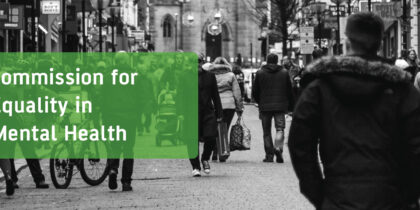“The Queen’s Speech today includes some significant proposals that could benefit the public’s mental health but with some major gaps and some serious concerns,” Centre for Mental Health chief executive Sarah Hughes said today.
Responding to the Government’s plans for legislation in the year ahead, Sarah Hughes said: “Plans to modernise the Mental Health Act are a welcome and vital step to bring it into the twenty-first century. We welcomed the Government’s white paper on Mental Health Act reform earlier this year and hope that its reform plans will commit to full implementation.
“We also welcome the proposed ban on ‘conversion therapy’. While we do not believe that consultation is necessary to remove this abhorrent practice, we are pleased that the Government has committed to take this important step.
“The Government’s planned Health and Care Bill may have benefits for people using health services if it does enable greater integration, earlier intervention and a bigger focus on health inequalities. But it must ensure that equal treatment between mental and physical health is established as a principle throughout. And by giving new powers to sub-regional Integrated Care Systems, decision-making risks becoming more remote from local communities rather than less.
“We are concerned about the Government’s narrow approach to health improvement. Tackling ‘obesity’ through measures aimed at changing ‘behaviours’ and choices ignores the real causes of poor physical health and they present a serious risk to people with eating disorders. We call on the Government to take a new approach to public health, linked to its commitment to ‘levelling up’ to focus on reducing inequalities and building healthier communities.
“We are disappointed that the Government is yet to commit to a plan to reform adult social care funding. We urgently need to reform social care to put it on an equal footing to health care, with the needs of working age people given as much consideration as those in later life.
“We are concerned that the Police, Crime, Sentencing and Courts Bill will increase the number of people who end up in prison in England and Wales. We know that this is harmful to mental health and does little to support rehabilitation.
“Finally, we are deeply concerned that the Government is planning to base future policies on the findings of the Commission on Race and Ethnic Disparities. Racial injustice is toxic to mental health, and the Commission’s report failed to address the links between racism, mental health and people’s experiences of coercion. It is vital that all government policies are based on robust, impartial evidence in order to address the inequalities and inequities that continue to cause disadvantage and discrimination.”






